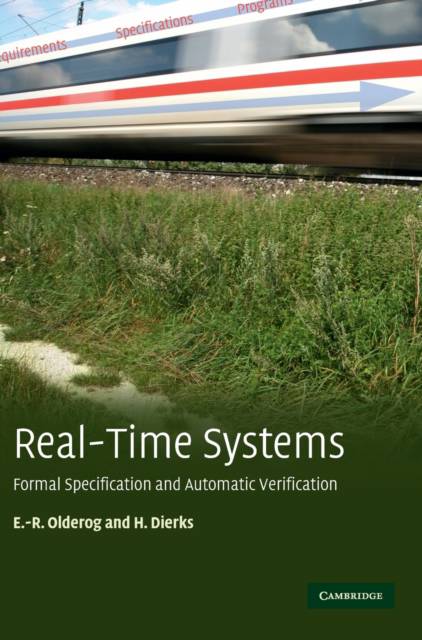
Bedankt voor het vertrouwen het afgelopen jaar! Om jou te bedanken bieden we GRATIS verzending (in België) aan op alles gedurende de hele maand januari.
- Afhalen na 1 uur in een winkel met voorraad
- In januari gratis thuislevering in België
- Ruim aanbod met 7 miljoen producten
Bedankt voor het vertrouwen het afgelopen jaar! Om jou te bedanken bieden we GRATIS verzending (in België) aan op alles gedurende de hele maand januari.
- Afhalen na 1 uur in een winkel met voorraad
- In januari gratis thuislevering in België
- Ruim aanbod met 7 miljoen producten
Zoeken
Real-Time Systems
Formal Specification and Automatic Verification
Ernst-Rüdiger Olderog, Henning Dierks
Hardcover | Engels
€ 160,45
+ 320 punten
Omschrijving
Real-time systems need to react to certain input stimuli within given time bounds. For example, an airbag in a car has to unfold within 300 milliseconds in a crash. There are many embedded safety-critical applications and each requires real-time specification techniques. This text introduces three of these techniques, based on logic and automata: duration calculus, timed automata, and PLC-automata. The techniques are brought together to form a seamless design flow, from real-time requirements specified in the duration calculus; via designs specified by PLC-automata; and into source code for hardware platforms of embedded systems. The syntax, semantics, and proof methods of the specification techniques are introduced; their most important properties are established; and real-life examples illustrate their use. Detailed case studies and exercises conclude each chapter. Ideal for students of real-time systems or embedded systems, this text will also be of great interest to researchers and professionals in transportation and automation.
Specificaties
Betrokkenen
- Auteur(s):
- Uitgeverij:
Inhoud
- Aantal bladzijden:
- 344
- Taal:
- Engels
Eigenschappen
- Productcode (EAN):
- 9780521883337
- Verschijningsdatum:
- 11/09/2008
- Uitvoering:
- Hardcover
- Formaat:
- Genaaid
- Afmetingen:
- 178 mm x 249 mm
- Gewicht:
- 793 g

Alleen bij Standaard Boekhandel
+ 320 punten op je klantenkaart van Standaard Boekhandel
Beoordelingen
We publiceren alleen reviews die voldoen aan de voorwaarden voor reviews. Bekijk onze voorwaarden voor reviews.









